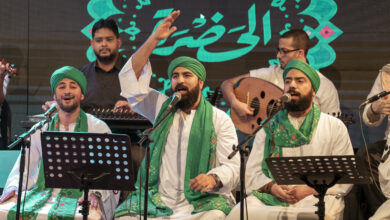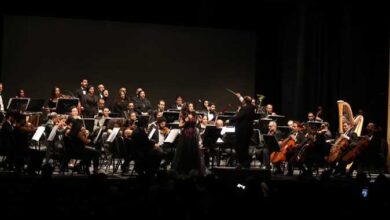The national science competition Famelab Egypt announced its 2011 winner, who will represent the country in the international version of the contest.
Famelab, a competition that began in the UK in 2005 and spread to other countries, examines a candidate’s ability to communicate scientific subjects to a non-specialized audience in a way that is scientific but still simple and interesting. Judges chose a winner March 26 after hearing presentations from 12 finalists.
In three minutes, each participant delivers a scientific message that should be enjoyable and comprehensible for the audience — without using any electronic tools.
“You won’t believe it, I joined this competition by mistake,” said winner Mahmoud Abu Khedr, a third-year mechanical engineering student at the University of Alexandria.
He explained that he had thought the competition was for young inventors, and he wanted to participate with an invention he claims will help decrease traffic accidents.
“When I found out, I just let it go, and I won,” Abu Khedr said.
He stressed that he owes his success to the Bibliotheca Alexandrina, where he participated in various science activities that helped him communicate scientifically and develop presentation skills.
Famelab Egypt is organized by the Research, Development and Innovation (RDI) program and the British Council. Participants must be between 18 and 40 years old as well as permanent residents of Egypt who are either studying or working in science, technology, engineering or mathematics.
Applicants receive acceptance emails and then may register in local competitions. The applications are available from the British Council or RDI websites and can be submitted to [email protected] before the deadline. Applicants are accepted on a first-come, first-serve basis.
The finalists this year were chosen after five local competitions: three in Cairo, one in Alexandria and one in Assiut.
Participants came up with innovative non-electronic tools to simplify communication. Participant Sherif Mahdy surprised the audience by saying his first words while playing his guitar.
Another participant, Sara Abdel Hamid, linked the Egypt's recent revolution to the body's system that rebels against foreign bodies, comparing the alarm signals the body sends to people’s appeals to the armed forces, a comparison strongly applauded by both audience and judges.
The judges' panel, comprised of leading scientific and media figures, evaluate candidates in three areas — content, clarity and charisma.
This year's panel included Mohamed Abdel Moneim El Sawy, founder of El Sawy Culture Wheel; Athar El-Hakim, an Egyptian actress; Alaa Idris, director of research unit in Masr El-Kher NGO; and Abdelhameed El-Zoheiry, RDI program coordinator.
The crowded event was held at Cairo Opera House and attended by Minister of Education Ahmed Gamal Eddin Moussa and Minister of Higher Education Amr Ezzat Salama, the who honored the winners on stage. They expressed hope that someday Egypt will organize similar competitions that attract participants from all over the world.
Famelab also awards the audience’s choice, which Abu Khedr also won. Another award — attending the International London Science Forum — is given to the best student performance, won by Sandra Hesham and Nada al-Mansy will go.
All finalists were given BlackBerry phones and netbooks from Vodafone Egypt, which announced an initiative to educate 17 million people in the next five years, using the slogan, "Knowledge is the power of everyone."
Abu Khedr and runner-up Kareem Helmy were awarded all-expenses-paid trips to the UK to attend FameLab International.
The winner will also attend the Cheltenham Science Festival in the UK in June 2011.
“This is the end of the event in Egypt, and the beginning of more work towards more science communication activities,” RDI deputy coordinator Hanan Dowidar said.
Hazem Shoeira, last year’s winner, told Al-Masry Al-Youm that he was very impressed in the UK last year to learn that "science communication" is not only an activity but a profession.
“They succeed in making science fun and bringing it to the streets,” he said.
Shoeira, last year's runners-up, and other motivated youth will be responsible for a Famelab club project in cooperation with RDI.
“As you know, if you want to raise an issue, you won’t find a better means than drama to spread your word,” actress and Famelab judge El-Hakim said. She said filmmakers should pay more attention to helping spread science culture to people.
Kareem Helmy agreed, suggesting special programs to build this culture among children.
“Money has never been the issue. We need people’s will, ideas and work,” Dowidar said.




